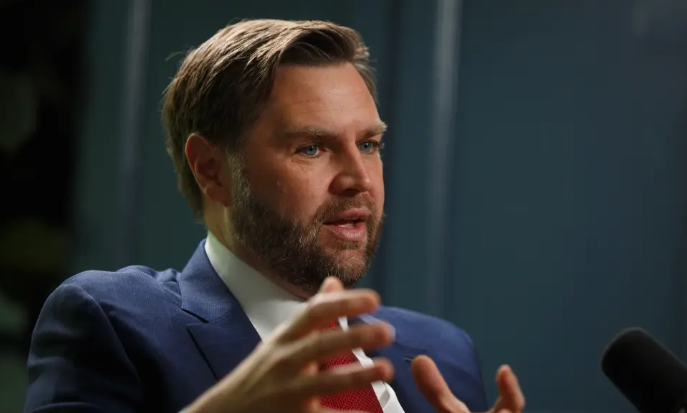JD Vance Reflects on Zelensky Clash, Says US-Ukraine Relations Have ‘Turned Over a New Leaf’
Vice President JD Vance said Wednesday that the relationship between the United States and Ukraine is now “much more productive,” eight months after his explosive Oval Office clash with President Volodymyr Zelensky made global headlines.
Speaking on “Pod Force One” with columnist Miranda Devine, Vance acknowledged the confrontation was “probably the most famous thing I’ve ever done, or maybe ever will do,” but insisted the situation had dramatically improved since that tense February 28 meeting.
“We have turned over a new leaf,” Vance said. “We’re trying to have productive relationships with both the Ukrainians and the Russians, because we want to end this conflict. And I think the president has a very good working relationship — and so do I — with all the parties involved.”
The infamous Oval Office meeting began on a warm note but quickly spiraled after Zelensky questioned Russian President Vladimir Putin’s willingness to negotiate. Vance had earlier told reporters that Kyiv needed to focus on diplomacy. The Ukrainian leader responded in front of the cameras, challenging the notion that Putin was a serious negotiating partner.
Tensions escalated, culminating in a shouting match. At one point, Vance scolded Zelensky for failing to thank the U.S. for its previous support. President Trump backed his vice president and bluntly warned the Ukrainian delegation that they were “gambling with World War III.”
“If you go back to that moment, I was getting frustrated because I perceived some rudeness,” Vance said. “The takeaway for me, and for any foreign leader visiting the Oval Office, is that you respect the rules of the house you’re in. You can disagree, but there’s a productive way to do it.”
Vance had long opposed sending more military aid to Ukraine while in the Senate, and Zelensky had labeled him “too radical” during the 2024 campaign. Despite that history, the vice president now says the situation has evolved.
“I actually think airing everything out, doing it in public, actually articulating where there were disagreements and where there were common interests — that was pretty productive,” Vance said.
Recent moves by President Trump have reflected a shifting strategy on Ukraine. In September, Trump dismissed Russia as a “paper tiger” and suggested Kyiv might be able to retake lost territory. But after a phone call with Putin on October 16, Trump struck a more pessimistic tone during his follow-up meeting with Zelensky.
Zelensky has continued pressing for approval to purchase U.S. long-range Tomahawk missiles. Trump has so far held back, wary of giving Ukraine weapons capable of hitting deep into Russian territory.
Vance, meanwhile, declined to predict the future of the war. “If you asked me six months ago, I would have said, ‘They’re never going to stop fighting. This is going to be like Russia’s Vietnam.’ If you asked me a month ago, I would have said we’re making incredible progress toward peace,” he said.
“It’s hard to venture a prediction, but I do think we’ve reached the point of diminishing returns for both sides.”

